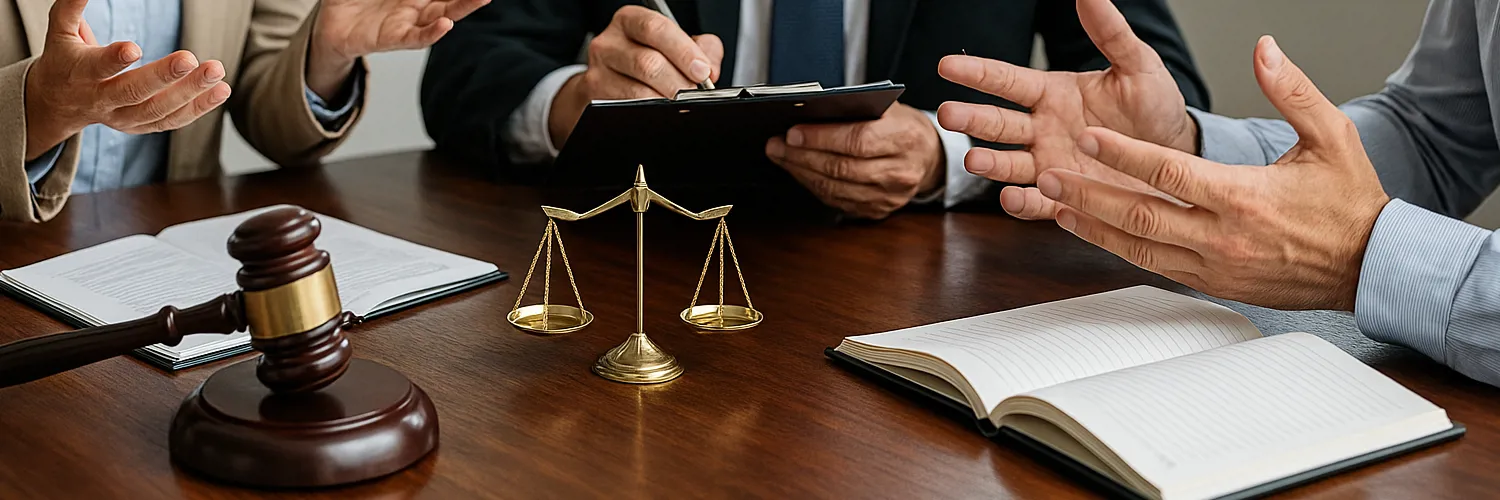PRACTICE AREAS

Dispute Resolution
What is Dispute Resolution?
Legal disputes arise from conflicts of rights, obligations, and interests between individuals, companies, or public institutions. The effective and fair resolution of these disputes is of great importance both for the individuals’ freedom to seek justice and for the protection of social order.
Dispute resolution is generally divided into two categories: judicial methods (through courts) and alternative dispute resolution methods (ADR). The choice of method depends on the nature of the dispute, the will of the parties, and legal regulations.
Dispute Resolution Through the Courts
The judicial method forms the foundation of our legal system. Disagreements arising between parties are resolved by applying to the authorized and competent courts. The litigation process consists of the following stages:
- Submission of petitions
- Collection of evidence
- Conducting hearings
- Issuance of the court decision
Court decisions are binding and can be enforced through execution if necessary. However, due to the potential length, cost, and risk of damaging relationships between parties, alternative methods may be preferred.
Alternative Dispute Resolution Methods
Alternative methods offer faster and more conciliatory paths. These include:
- Mediation: The parties try to produce their own solutions with the help of an independent mediator. In some cases, it is a prerequisite for filing a lawsuit.
- Arbitration: Frequently used in commercial disputes. The parties agree to have the dispute resolved by arbitrators.
- Conciliation: Applied in certain offenses under criminal law. An attempt is made to reach an agreement between the parties with the help of a conciliator.
Professional Support in Dispute Resolution
Choosing the resolution method appropriate to the nature of the dispute prevents the loss of rights. Therefore, obtaining legal support is extremely important. An experienced lawyer:
- Analyzes the dispute
- Properly guides the legal process
- Protects the rights of the parties
Conclusion
Dispute resolution is of great importance not only for individuals but also for the general welfare of society. Regardless of the chosen method, a fair and effective resolution process is everyone’s right. You can get more information through our website and contact our expert legal professionals.